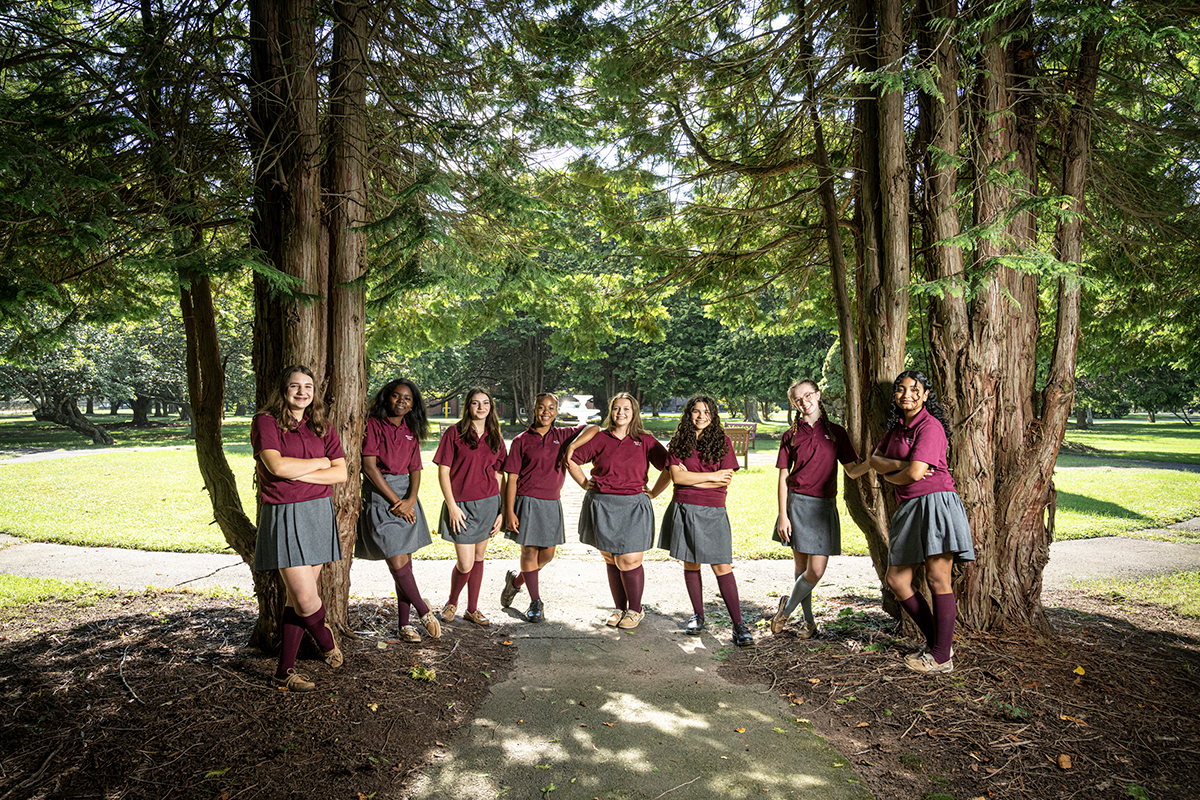Schools that are small by design make big impacts in the lives of the students who attend them. In fact, the effects are life-changing and life-long. On a daily basis, the small-school experience transforms students and helps them to maximize their potential. Let’s take a look at four noteworthy benefits of a small school.
1. Small schools build community. Students who attend a family-like school, where “everyone knows your name,” feel safe. Feeling safe is essential for learning. Everyone is not only supporting them but actively encouraging them, and a growth-mindset results. Students experience that stepping out of their comfort zone is empowering and leads to finding new interests and talents that are meant to be shared. Because students grow accustomed to the richness of community, they learn how to create it wherever they go. This is a huge benefit that serves them well throughout life. Graduates excel in college and the workplace in part because they know how to build bonds and connect with others.
2. Small schools help students find their voice. In a small school, students have no choice but to think, form a thoughtful idea, and learn how to express it. All students get a turn to speak, whether they like it or not! Young people learn that what they think, matters, and they have a right and responsibility to speak up. The more practice students have in expressing themselves, the more their ideas can be taken to the next level. Students are both challenged and encouraged. There is also a correlation between expressing one’s ideas and attentively receiving those of others, resulting in both reciprocal understanding as well as respectful disagreement. Students’ ideas move from being rooted in emotion or parroting to being informed and unique.
3. Small schools nurture empathy. Even small groups are a cross-section of humanity. In a small-school environment, students interact with those they may not have chosen to know in a setting with more people. They encounter schoolmates with various shapes, sizes, ethnicities, and ways of speaking, thinking, and behaving. Instead of recoiling from those to whom they are not naturally inclined, students have no choice but to pause and behold those around them as human beings. Rash judging and labeling are replaced by empathy. Students grow in their capacity to see from another’s point of view and to appreciate those who are different from them. The intelligence of their external senses is surpassed by the knowledge of their hearts.
4. Small schools develop emotional muscles. Developing bodily muscles involves commitment, growing pains, and stamina. The same is true for emotional muscles. Students cannot run, hide from their problems, and avoid facing conflicts. They are taught creative conflict resolution skills and have opportunities to practice them. They learn that conflicts are part of the journey of life. Practicing the skills required when facing conflict, though at times uncomfortable and painful, develops character and strength while clarifying values. A person who knows how to creatively and confidently respond to conflict is a person who has what it takes to go far in life.
These are just four of the big benefits of small schools. Some people erroneously think that being in a small school is limiting and doesn’t prepare students for a large college or “the real world.” The reality is just the opposite. Small schools provide, build, find, nurture, and develop the skills that empower young people and set them up for a lifetime of meaningful living. Most of the groups we experience in life are small anyway so why not get a head start on life!
Written by Sr. Lesley Draper MPF, Principal of Villa Victoria Academy.


